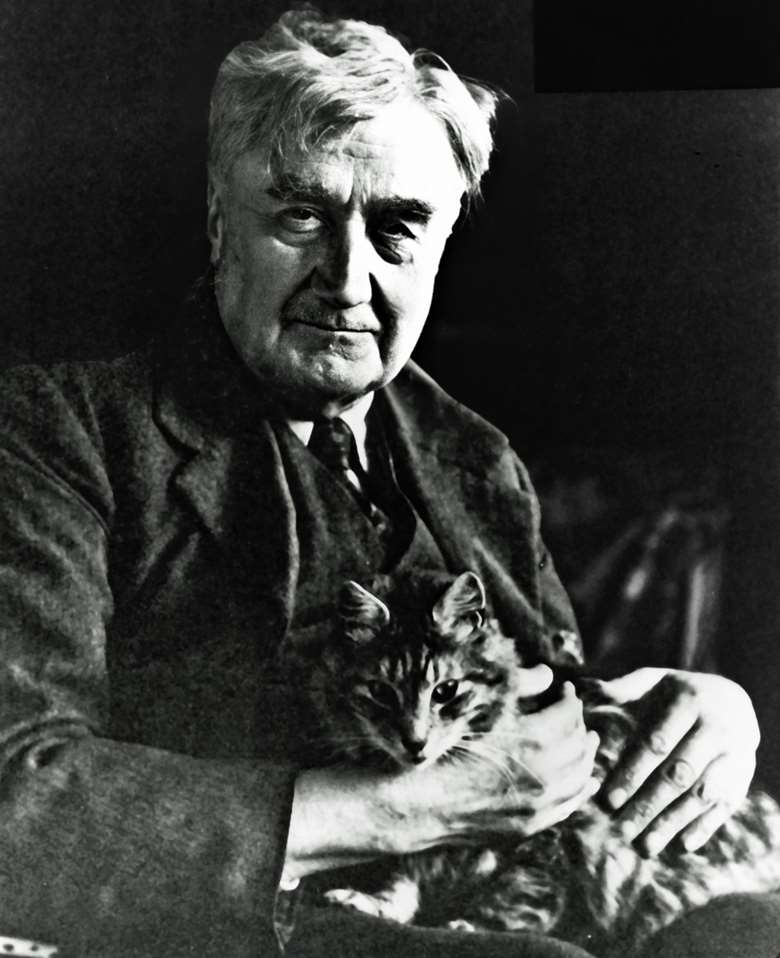The Bach Choir: following in Vaughan Williams' footsteps
David Hill MBE
Wednesday, October 12, 2022
On the 150th anniversary of Ralph Vaughan Williams' birth, musical director David Hill MBE guides us through the composer's connection with The Bach Choir

I used to sing O Taste and See when I was a young chorister, but it wasn't until I arrived at Chetham's that I started appreciating the breadth of Vaughan Williams’ work, especially The Lark Ascending - that was a life-changing moment. I had no idea that all the training and immersion in his and other English composers' music would end in me conducting and playing his music in world-renowned venues as musical director of The Bach Choir. I feel very fortunate to be following in his footsteps.
It’s surprising – and quite difficult to comprehend – that I am only the ninth musical director of The Bach Choir since it was founded in 1876. Vaughan Williams was an active singing member and involved in the administration of the Choir for 18 years before he became its musical director when he was 49 (I and my immediate predecessor, Sir David Willcocks, both assumed the role of musical director at the age of 40). It is over 90 years since Vaughan Williams resigned from the position to spend more time composing, but there have been only four musical directors since his departure.
There is no way of knowing how the Choir sounded during Vaughan Williams’ time as there are no recordings, but we do know that he used his time as musical director to try out his new compositions, and one of his final concerts was a performance of his A Sea Symphony. From a number of sources, it is clear he found conducting a challenge and would be heard saying ‘it’s not together, stop watching me!’ He was a very open, pragmatic composer and musician and would often say, 'I have given you the notes, you make them work in the way you feel best' – or words to that effect. It’s reassuring to know this when conducting his work – it's very empowering when a composer doesn't dictate your every musical move.
There is no question in my mind that Vaughan Williams' legacy lives on in The Bach Choir and beyond, not so much in the sound or approach to present-day music-making, but in the knowledge his music speaks more strongly to us now than ever before. He is the grandfather of the recovery of music in the United Kingdom: proclaiming the need to rediscover our own roots, whether in folksongs, hymnody, chant and poetry. Vaughan Williams is a quintessentially English composer. Whilst he knew Elgar and admired him, he also knew Elgar’s mission was to produce another ‘voice’ in English music, imbued with the influences of mainland Europe, particularly Wagner and Strauss. Vaughan Williams eschewed that but, between both composers, they forged a dual path of national development in musical composition.
We owe them both an enormous debt of gratitude, but it has to be Vaughan Williams, in all his many guises as a composer, who has helped countless composers to find ‘their voice’ more than any other.
David Hill will be leading The Bach Choir and Philharmonia Orchestra in a celebration of Vaughan Williams' 150th anniversary at Southbank Centre's Royal Festival Hall along with soloists Roderick Williams and Elizabeth Wattson on 17 November. Tickets are available here.

